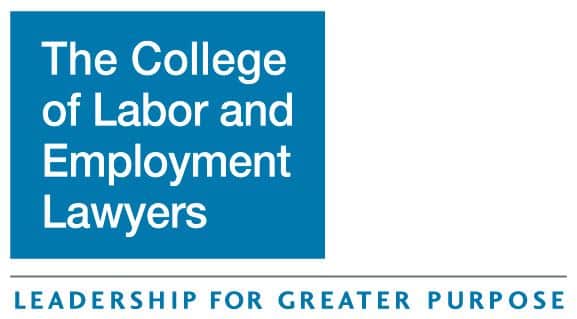Workplace sexual harassment is any type of unwanted sexual behavior in the workplace. More specifically, sexual harassment is a type of sexual discrimination that negatively impacts an employee. Individuals can be sexually harassed by their manager, coworker, boss, or anyone else in the workplace.
There are a few different types of workplace sexual harassment, including the following:
Quid Pro Quo Harassment
Quid pro quo harassment is when an individual is threatened with a consequence, like losing a job title or benefits, in exchange for sexual favors. Quid pro quo harassment can include receiving a raise for hiding sexual harassment or assault, financial compensation for a sexual favor, or threats of termination if sexual harassment is not accepted.
Hostile Work Environment Harassment
Hostile work environment harassment is created when repeated sexual encounters or remarks are made, resulting in a hostile atmosphere. Employers are responsible for maintaining a safe work environment for employees, clients, customers, and managers. Unwanted sexual advances, derogatory comments, and crude sexual jokes all contribute to a hostile work environment.
If you have experienced sexual harassment, you deserve to hold guilty parties liable. Your employer may be at fault if they were negligent in any part of the sexual harassment or reporting. Consulting with Attorneys skilled in handling sexual harassment claims is the best way to determine whether you have a legal case. For more information, call our law office today at 314-528-9661.
When is an Employer Liable for Sexual Harassment?
Sexual harassment in the workplace is an unfortunate phenomenon and one that employers must prepare for. In some instances, it’s possible to hold both the harasser liable for the harassment and the employer liable for negligent supervision.
An employer may be held liable for sexual harassment if the following are true:
- The employer knew (or should have known) about the harassment
- The employer did not reasonably try to prevent or correct the harassing behavior
- The employee proactively took advantage of preventative and corrective measures provided by the employer
If the sexual harassment was perpetrated by a supervisor, the employer is liable if the harassment resulted in loss of wages, termination, or failure to promote or hire. Proving liability in a sexual harassment case can be difficult, but it’s much easier with a legal team on your side. If you would like to hold your employer accountable in a sexual harassment case, contact our office today.
What Are the Possible Outcomes of a Sexual Harassment Suit?
Suing your employer may be a good way to seek compensation for damages you accrued during or after sexual harassment. While there is a wide range of possible outcomes in sexual harassment suits, there are two main pathways that a lawsuit of this nature generally takes.
The possible outcomes of a sexual harassment suit include:
-
Settlement: The majority of workplace sexual harassment cases are settled before going to court. In a settlement, your employer will offer a financial payment to pay for items like lost wages, emotional damage, and health insurance. You and your employer mutually agree upon this amount before payment is made.
-
Jury trial: There is a potential that your case could go to trial. If it does, having an experienced legal team on your side is essential. At trial, you must provide evidence to prove your employer’s negligence and convince a jury of their liability. If your employer is found to be at fault, they may be required to pay you for damages.
Although many lawsuits are settled outside of court, the potential payment after a jury trial is typically much higher than a settlement payment. Jury trials are riskier, however, since your side of the story will be heavily scrutinized by your employer’s legal team.
Should I Contact an Employment Law Lawyer?
Experiencing sexual harassment in the workplace is a distressing experience. Harassment becomes even more distressing when your employer knows about it and won’t do their duty to protect you from it. If you have experienced sexual harassment in the workplace, your employer may be at fault for your damages. An employment law lawyer on our team will examine your case to determine whether your employer is liable and how you can file a suit against them. For more information, contact Riggan Law Firm, LLC at 314-528-9661.












